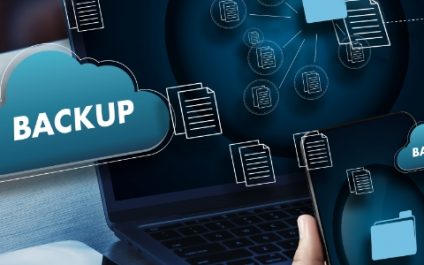Data loss can lead to financial loss, reputational damage, and legal complications. Therefore, it’s crucial for companies to implement effective strategies to prevent data loss and ensure the safety and integrity of their valuable information. Here are some tips and best practices that businesses can follow to minimize the risk of data loss. Back up […]
Tips on how to protect your business from data loss
Microsoft 365 data security: 7 Ways to boost protection

Microsoft 365 has become an incredibly popular choice for enterprises of all sizes looking for a comprehensive set of tools for staying productive and secure. But as with using any software, it is important to take steps to protect your data. In this article, we will discuss seven ways to boost data protection in Microsoft […]
Hurricane season DR tips
The chances of your business being hit by a hurricane are slim. But this year, the odds are actually alarming — the National Oceanic and Atmospheric Administration (NOAA) predicts up to four unusually active hurricanes. If you don’t want to fall victim to data loss and tarnish your business’s reputation in the process, read on. […]
Ransomware adopting self-replication
Although some may have hoped that the threat of ransomware was on the decline, the reality is that it’s quite the opposite. Until now, attacks seemed to be targeted directly at its victims, but Microsoft warns that may no longer be true. With their discovery of self-propagating ransomware it’s vital to fully understand the possible […]
The Importance of Disaster Recovery
Most business owners don’t normally think they will be a victim of a natural disaster…not until an unforeseen crisis happens and their company ends up suffering from thousands or millions of dollars in economic and operational losses — all because of the lack of thoughtful disaster preparedness. This post gives small or mid-sized businesses (SMBs) […]
The curse of Chimera ransomware
There are numerous strains of malware out there, but one particularly unpleasant one is ransomware. While this malicious software has been around for some time, recently a newer, nastier upgrade was discovered. Posing a threat to businesses of all sizes, the program, called Chimera, has upped the ante when it comes to scaring its victims […]
Japan’s Lesson
The 8.9 magnitude earthquake off the eastern coast of Japan was not a local event; it triggered a tsunami warning for Southern California, impacting many American companies — and reminding all of us just how important it is to have a Business Continuity Plan. What Japan Can Teach Us about Business Continuity When a powerful earthquake rocked northeast Japan in March 2011, the impact was felt across the globe — a powerful reminder of how important disaster recovery plans are to all businesses. You may think of disasters as being relatively rare events, like earthquakes—but however rare in any one location, events such as these can have an effect on many other locations. Case in point: According to Bloomberg, at least 35 companies derive 15 percent or more of their sales from Japan. Among them are Aflac (an insurance company), Rambus (a memory-chip interface manufacturer), and Coach (a retailer). For example, Japan generated about 75 percent of Aflac’s 2010 sales. American ports and shippers were also affected: the Port of Los Angeles temporarily suspended the transfer of hazardous materials and bunkering fuel operations. The point is that disasters, whether acts of nature or man-made mishaps, can strike unexpectedly at any organization. Recovering from a catastrophe can be very demanding, expensive, and time consuming — especially for those who haven’t taken preventative measures and preparations. What can you do to prepare? Develop a Business Continuity Plan (BCP), which will enable your business to resume normal operations after a significant data loss or network downtime due to natural disasters, sabotage, theft, or equipment failure. Even if you already have a BCP, it’s important to make sure that your plan is flexible and scalable, and can adapt to the natural changes that your business undergoes. For example, software and hardware installations, updates, and modifications are an important part of business continuity planning. Your data should be properly and regularly backed up, and you need storage and recovery systems and procedures that are continually updated with changes that constantly occur in your IT. In addition to having a flexible and scalable BCP, you also need a highly skilled IT staff that is up to speed on the importance of backup and recovery of data. It’s important that this staff is properly trained to implement your BCP in the event that your business experiences a major data loss. Unfortunately, companies routinely suffer significant data loss because they discover the errors in their systems too late — usually while trying to recover the data. Your business is important to you — and to us, too. We’re here to help you create or fine-tune a BCP that is best suited to your unique business needs, as well as prepare and assist your staff in implementing the plan should it become necessary. Contact us for more details.


